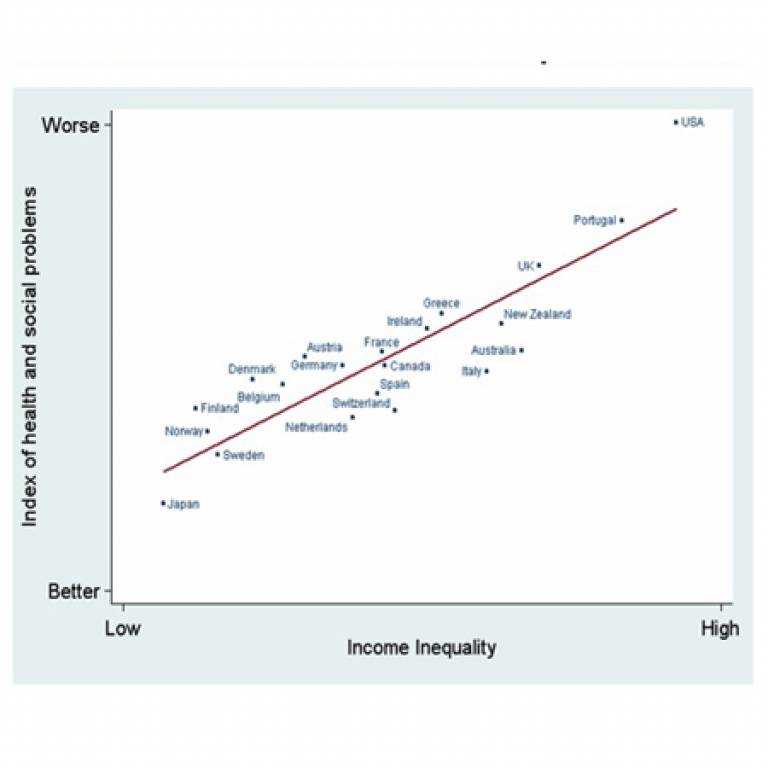Greater social equality is 'the key to wellbeing'
17 June 2010
The prevalence of negative health and social factors in developed nations is highest where wealth is distributed unequally.

- The Equality Trust
- UCL's Grand Challenge of Human Wellbeing
- Watch Polly Toynbee and Professor Richard Wilkinson's views on inequality and wellbeing on the UCLTV YouTube channel
That pattern was demonstrated by worldwide epidemiological data presented by Professor Richard Wilkinson (Nottingham), co-author of The Spirit Level and co-founder of the Equality Trust, at a UCL Grand Challenge of Human Wellbeing event on 16 June 2010.
Speaking at 'Wellbeing for all? Achieving wellbeing in an unequal world', Professor Wilkinson said that in developed nations the degree of inequality - the size of the difference between the incomes of the rich and the poor - correlates with prevalence of a wide range of social and health problems. This includes life expectancy, which is not related to average incomes, but to income differences.
He argued that greater social equality is the most important factor in ensuring people's wellbeing. In contrast to less equal rich countries, more equal rich countries have, for example:
- higher levels of education
- more trust and community involvement
- greater social mobility
- more wellbeing among children
- lower levels of physical ill health
- lower levels of mental ill health
- less drug abuse
- lower rates of imprisonment
- less obesity
- less violence
- fewer teenage births.
Societies with a bigger gap between the rich and the poor are bad for everyone in them, including the well-off. While greater equality yields the greatest benefits for the poor, the benefits extend to the majority of the population.
The chair of the event, Polly Toynbee (The Guardian), introduced brief talks by three speakers - Professor Philip Schofield (UCL Bentham Project), Professor Costas Meghir (UCL Economics) and Dr Alex Frediani (UCL Development Planning Unit) - followed by discussion with the audience.
To find out more, use the links at the top of this article.
Image: Index of health and social factors - life expectancy; maths and literacy; infant mortality; homicides; imprisonment; teenage births; trust; obesity; mental illness, including drug and alcohol addiction; and social mobility - relative to income inequality. From The Spirit Level (The Equality Trust)
 Close
Close

